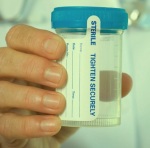 By: Valerie Shahriari & Jacqueline Bain
By: Valerie Shahriari & Jacqueline Bain
Across the healthcare industry, providers and healthcare businesses are consistently faced with the decision of whether to employ or contract with their workers. Whether it’s a physician working with a group practice, or a marketer on behalf of a healthcare service, correctly structuring relationships between healthcare businesses and their workers is important. For tax reasons, many workers strongly prefer to enter into independent contractor relationships. However, simply calling oneself an independent contractor is not enough to solidify the relationship. Many times, workers who call themselves independent contractors are actually employees in the minds of the government. And sometimes, so-called “employees” with several part-time positions are actually viewed as independent contractors.
On July 15, 2015 the Administrator of the Department of Labor’s Wage and Hour Division (WHD) provided additional guidance regarding the application of the standards for determining who is an employee under the Fair Labor Standards Act (FLSA). The goal of the guidance is to help the regulated community in classifying workers and decreasing misclassification. The Administrator’s Interpretation reviews the pertinent FLSA definitions and the breadth of employment relationships covered by the FLSA. The Administrator’s Interpretation then addresses each of the factors of the “economic realities test”.
According to the Administrator, when determining whether a worker is an employee or independent contractor, the application of the economic realities factors should be guided by the FLSA’s statutory directive that the scope of the employment is very broad. The FLSA’s definitions establish the scope of the employment relationship under the Act and provide the basis for distinguishing between employees and independent contractor.
The Supreme Court and Circuit Court of Appeals have developed a multi-factorial “economic realities” test to make the determination whether a worker is an employee or an independent contractor under the FLSA. The test focuses on whether the worker is economically dependent on the employer or in business for him or herself. The factors include:Continue reading


 By:
By:  By:
By:  By:
By: 
 By:
By: 



